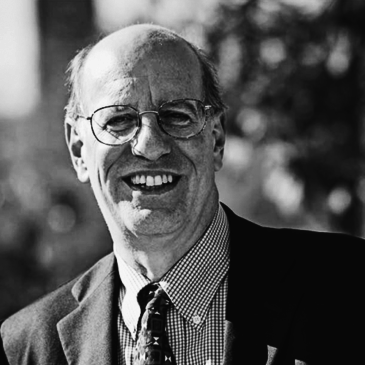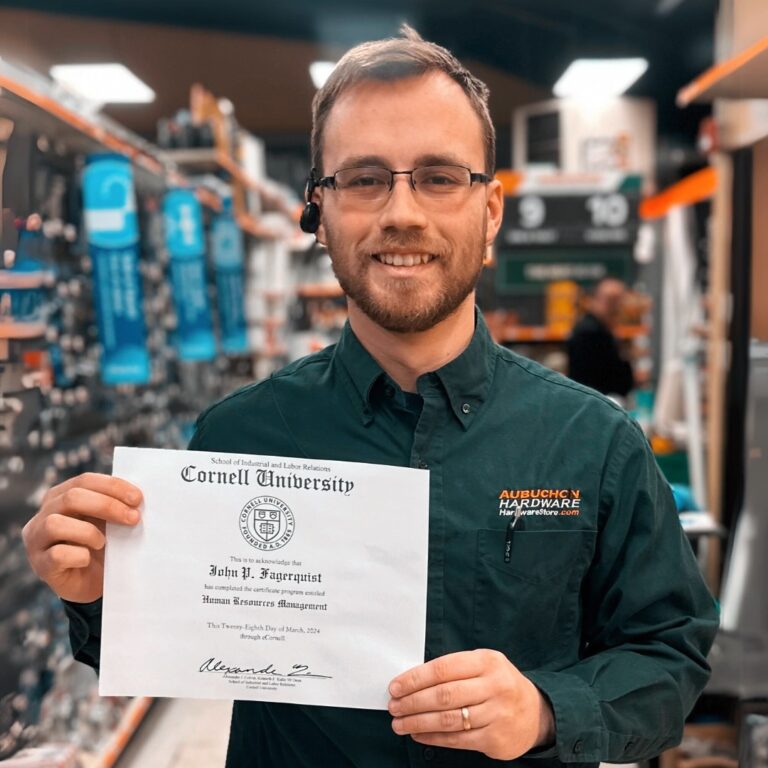Overview
Historically in labor relations, the enemy is always on the other side. This certificate program takes a different approach, aiming to help you see the value from both perspectives, with a focus on answering the question, “What does the other side need?”
Designed to help both new and seasoned managers and union representatives deal effectively with labor relations, the courses address aspects of collective bargaining in the United States and provide a framework for addressing labor and employer conflict in the workplace.
The program begins with a focus on establishing a foundation in collective bargaining for analysis of one’s role within the union environment. It then moves into a close look at contract negotiation, including the key skills you need to cost out a contract during tense and fast-moving negotiations. The last two courses provide a time-tested, comprehensive method to address workplace conflict from the grievance through arbitration.
How It Works
- View slide #1
- View slide #2
- View slide #3
- View slide #4
- View slide #5
- View slide #6
- View slide #7
- View slide #8
- View slide #9
Faculty Authors
Harry C. Katz is the Jack Sheinkman Professor of Collective Bargaining at Cornell University’s ILR School and the director of ILR’s Scheinman Institute on Conflict Resolution. He received his doctorate in economics from the University of California at Berkeley. After teaching at the Massachusetts Institute of Technology, Professor Katz came to ILR in 1985. His areas of expertise include labor-management cooperation, labor relations, and contract negotiations.
Sally Klingel is the director of Labor-Management Relations programming for the Scheinman Institute on Conflict Resolution in Cornell’s School of Industrial and Labor Relations. She specializes in the design and implementation of conflict and negotiation systems, labor-management partnerships, collective bargaining strategies, strategic planning, and leadership development. Her work with Cornell over the past 20 years has included training, consulting, and research with organizations in a variety of industries, local, state and federal government agencies, union internationals and locals, public schools and universities, and worker owned companies.
Sally Klingel holds a M.S. in Organizational Behavior from Cornell University’s School of Industrial and Labor Relations, and a B.A. from the University of Michigan. She has authored articles, monographs and book chapters on innovations in labor-management relations and conflict methods.
Dan McCray is the Director of Labor Relations Programs for the Cornell ILR School’s Scheinman Institute, where he teaches management and union teams in collective bargaining and contract administration. Before joining Cornell in 2011, Mr. McCray was the director of labor relations and chief negotiator for several large municipalities, where he led negotiations with municipal unions, including law enforcement.
Arthur Wheaton is Director of Labor Studies and works in the Cornell ILR Buffalo Co-Lab. He also works for the Scheinman Institute on Conflict Resolution. Professor Wheaton’s expertise includes workplace training, negotiations, costing out a contract, and conflict resolution, as well as auto and aerospace industrial relations.
Prior to joining the ILR faculty in 1999, Professor Wheaton was with the Massachusetts Institute of Technology, where he was project manager for the Labor Aerospace Research Agenda.
Author of numerous publications, Professor Wheaton earned a B.A. in Multidisciplinary Social Science with a concentration in Political Science, History, and Economics at Michigan State University. He has an MLIR from the Michigan State School of Labor and Industrial Relations.


Harry C. Katz is the Jack Sheinkman Professor of Collective Bargaining at Cornell University’s ILR School and the director of ILR’s Scheinman Institute on Conflict Resolution. He received his doctorate in economics from the University of California at Berkeley. After teaching at the Massachusetts Institute of Technology, Professor Katz came to ILR in 1985. His areas of expertise include labor-management cooperation, labor relations, and contract negotiations.

Sally Klingel is the director of Labor-Management Relations programming for the Scheinman Institute on Conflict Resolution in Cornell’s School of Industrial and Labor Relations. She specializes in the design and implementation of conflict and negotiation systems, labor-management partnerships, collective bargaining strategies, strategic planning, and leadership development. Her work with Cornell over the past 20 years has included training, consulting, and research with organizations in a variety of industries, local, state and federal government agencies, union internationals and locals, public schools and universities, and worker owned companies.
Sally Klingel holds a M.S. in Organizational Behavior from Cornell University’s School of Industrial and Labor Relations, and a B.A. from the University of Michigan. She has authored articles, monographs and book chapters on innovations in labor-management relations and conflict methods.

Dan McCray is the Director of Labor Relations Programs for the Cornell ILR School’s Scheinman Institute, where he teaches management and union teams in collective bargaining and contract administration. Before joining Cornell in 2011, Mr. McCray was the director of labor relations and chief negotiator for several large municipalities, where he led negotiations with municipal unions, including law enforcement.

Arthur Wheaton is Director of Labor Studies and works in the Cornell ILR Buffalo Co-Lab. He also works for the Scheinman Institute on Conflict Resolution. Professor Wheaton’s expertise includes workplace training, negotiations, costing out a contract, and conflict resolution, as well as auto and aerospace industrial relations.
Prior to joining the ILR faculty in 1999, Professor Wheaton was with the Massachusetts Institute of Technology, where he was project manager for the Labor Aerospace Research Agenda.
Author of numerous publications, Professor Wheaton earned a B.A. in Multidisciplinary Social Science with a concentration in Political Science, History, and Economics at Michigan State University. He has an MLIR from the Michigan State School of Labor and Industrial Relations.
- View slide #1
- View slide #2
- View slide #3
- View slide #4
- View slide #5
Key Course Takeaways
- Understand the role of collective bargaining in U.S. labor relations
- Develop a negotiating strategy tied to organizational goals
- Key steps in preparing for negotiation
- Practice competitive and collaborative negotiation
- Cost out proposals and counter proposals to determine the value and cost of the agreement
- Understand the elements of a grievance procedures
- Develop skills and structure to prepare and present in an arbitration hearing

Download a Brochure
Not ready to enroll but want to learn more? Download the certificate brochure to review program details.
Watch the Video
Explore Related Programs
Request Information Now by completing the form below.

Labor Relations
| Select Payment Method | Cost |
|---|---|
| $0 | |


















